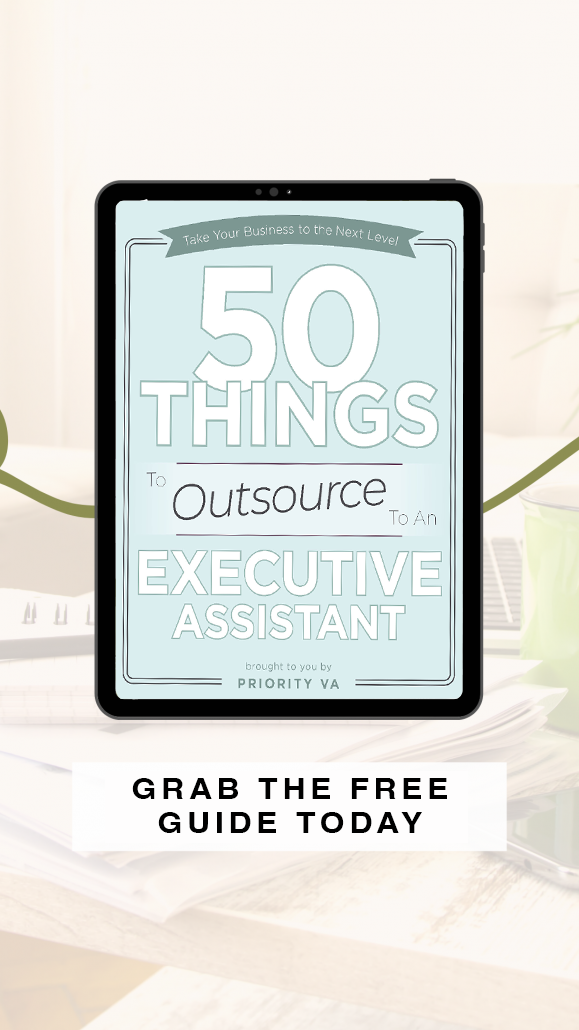If you never woke up tomorrow, would your business outlive you?
It’s a horrible question. Actually, no. It’s a horrible answer to think about. The question itself, however, is a smart one to be asking. I’ve spent a lot of time lately thinking about my legacy. My business is one of the things that is so important for me to leave as a legacy for my girls.
It won’t be much of a legacy if it’s gone the second I’m gone.
Morbid, I know, but we have to take responsibility for the things that matter to us.
If your business isn’t running like a well-oiled machine, and every decision, implementation, or idea hinges on your involvement and say, it’s time to buckle down and do some reevaluating.
If you want your business to be your legacy, perhaps even make sure it provides for the ones you love long after you’re gone, there are some essentials you need to take care of today. Here’s a little push to get you headed down the right track while planning for the future of your business – realizing it may be a future that doesn’t include you.
Document, Document, Document
Everything you do, every way you do it, and every reason it needs to get done needs to be documented. Your business didn’t come with a manual, but you need to be writing one people can reference! Even if you’re taking time for vacation, you need to have documentation in place so team members can confidently make decisions based on the processes and procedures you’ve got in writing.
Each person on my team has written and SOP for what they do in my business. That means that when someone is on vacation or out sick, we don’t have to miss a beat. Someone on our team can pop in and take over using the SOP that we have in place.
Documenting is also a great way for you to evaluate what you’re doing and why. Perhaps as you’re documenting it all, you’ll discover a far more efficient process, or program, to help you get the job done. Keep your SOP (or playbook, as we call it), open on your desktop, ready to update. Discoveries are always waiting to be made, and it’s better to find them ahead of a crisis than because of one…
Define Roles
Does everyone on your team know who’s doing what?
Whether you have one team member, or one hundred, everyone needs to be clear on their role in your business. Who’s second in command? Who do you trust with the details when you’re heading out of town? Is there anyone who is responsible for supervising others?
Your team members need to know what their role is, and what’s expected of them – for more than the “in case” scenario of you not showing up to work again. They need to know what’s expected of them in order for them to perform at their best.
For example, my assistant, Kim is my right hand. When I’m out, she’s the one who runs my business for me. Making sure Clients and VAs are taken care of, running team meeting and making sure that all the plates are spinning. My team knows this, as well as knows who is responsible for each task within Priority VA.
It’s one thing to write down who’s in charge of what, but take that information to the next level and make sure your team members understand their specific roles and responsibilities in every situation.
Manage Passwords
You’ve probably got a system down somewhere of what passwords are for which programs. However, Notes is probably not the best keeper of passwords! What happens if your computer crashes, is stolen or has a cup of coffee spilled all over the keyboard? Will someone be able to log in to your email to answer those important messages in your absence?
It’s important to make sure you have a password management program in place. I prefer Lastpass. It can track all of your secure passwords and even credit card information for you, and keep your information safer than scribbling on loose leaf paper now and then.
Whatever password management system you choose, you’ll need to make sure if and when it’s needed, that information can be accessed by key people on your team. Most password management programs allow you to share login information (either limited or with full rights) to your team members. Remember it’s shared through a secure program, so it’s not like advertising it on a billboard. It’s safer than it may feel like to you.
Estate Planning
No one wants to imagine their death, but life will be going on in some form after you’re gone, and you need to make sure those important to you are taken care of. If you haven’t included your business in your estate planning, now is the time to do that.
Make sure it has all the necessary legal jargon – who will be in charge of what, where the important information is, and what assets the business has in its possession. Your attorney will help you draft the appropriate estate planning documents, but don’t stop at the items in your home. Take careful planning in distributing the assets and responsibilities of your business to the entities or individuals that will continue your legacy when you’re no longer able to.
A will usually ends up going through probate, but something like a trust is indisputable after death. Weigh your options, and spend time taking care of this on the front end, so people aren’t having to sort through a disastrous mess in the wake of their grief for losing you. Enlist the help of a good attorney and your loved ones will know that you cared enough to make sure they were taken care of, even after you’re gone. (See… morbid… again!)
It isn’t an easy subject, but it’s super important. Make sure you’re running your business now in such a way that it will truly be a legacy for generations to come.





